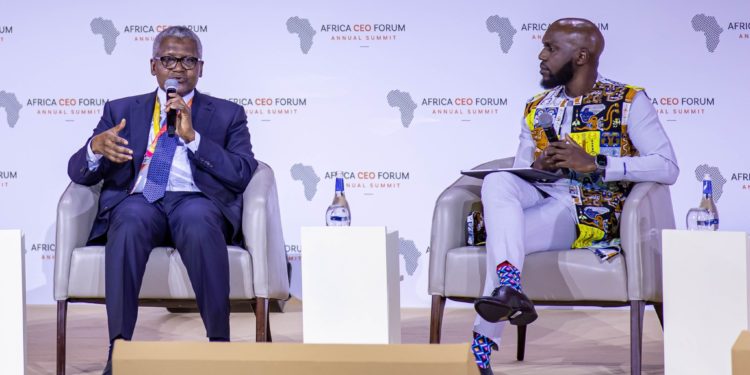Africa’s richest man, Aliko Dangote, has voiced frustration over the visa obstacles faced by African investors seeking to move across the continent, calling for reforms to ease such bureaucratic barriers and facilitate greater intra-African trade and commerce.
In a candid exchange with CNN’s Larry Madowo at the Africa CEO Forum Annual Summit, the Nigerian billionaire lamented the cumbersome process of obtaining visas to travel within Africa on his Nigerian passport. “I have to now apply 35 different visas on my passport,” Dangote said, adding “I really don’t have the time to go and be dropping my passports in embassies to get a visa.”
His complaint highlights persistent hurdles undermining the African Continental Free Trade Area (AfCFTA) agreement, which aims to create a single market for goods and services across the 54 nation states. Dangote questioned the disparity in visa requirements, noting that a French passport holder faces fewer hurdles moving around Africa compared to him as a Nigerian national.
“The most annoying thing is that…if you are treating everybody the same then I can understand,” Dangote stated. “But I can assure you Patrick here [CEO of Total] doesn’t need 35 life visas, but I said that you do not need 35 visas on a French passport compared [to the number required on] a Nigerian passport.”
Dangote, whose $13.5 billion fortune spans cement, agriculture, and other investments across Africa, raised the issue directly with Rwandan President Paul Kagame on the summit sidelines.
His critique sheds light on the very real obstacles investors face despite lofty intentions behind the AfCFTA. The historic trade pact, operational since 2018, was envisioned as a catalyst to spur much-needed intra-African trade by lowering tariffs and reducing red tape.
For titans like Dangote pushing to accelerate African economic integration through cross-border investments, visa challenges symbolize the entrenched non-tariff barriers the AfCFTA aimed to dismantle.
Dangote’s remarks serve as a reality check on the substantive reforms still required, including visa regimes, to truly unlock Africa’s economic potential.
















